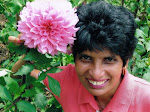This is a repost from the Leadership Beyond Boundaries site on a mentor training program I did in Jamaica for public health leaders.
Tzipi Radonsky, Philomena Rego and Pat Williams used the Creative Leadership Conversation toolkit to help prepare public health leaders to grow their skills as collaborators and mentors. The two-and-a-half-day program was hosted by for Caribbean Health Leadership Institute at the University of West Indies in Kingston Jamaica and attended by participants from across the Caribbean: Bahamas, Barbados, Belize, Dominica, Jamaica, St. Kitts, St. Lucia, and Trinidad & Tobago.
The 15 participants were doctors and senior public health administrators working on the frontlines of HIV/AIDS. In their work, they shoulder great responsibility and are charged with tackling a spectrum of public health challenges that involve an array of stakeholders. The ability to build relationships and shape collaborative outcomes is imperative as is the urgency to get things done. Said one participant before the program:
“The major challenge is not having the patience to listen and let the mentee or the other people formulate a position or take full charge of the situation, and endure or enjoy the consequences. It requires an ability to both pull back and to be strong and frank giving an honest assessment, whether this is praise, compliment or correction. I have a tendency to “smooth over” some circumstances, adopt a protective posture or just do it myself.”
The mentor training methodology used the Creative Leadership Conversations toolkit to help participants learn to engage others in a constructive, appreciative and developmental way that builds shared ownership and leadership. The program provided the public health leaders with the opportunity to learn and practice essential coaching and mentoring skills, and equipped them with key leadership concepts and simple yet powerful assessment tools they could use for mentoring and collaborative work. The program wove together coaching demos and practice sessions so that the participants had the immediate opportunity to practice new techniques in peer- based learning groups as soon as they learned them.
The participants found the experience powerful, personal, and practical. In the closing reflections we heard that it was an “enthralling, inspiring” experience that used practical methods that were “perfect examples of adult learning.” The peer discussions, participants said, brought forth “issues of significance that were hidden.” We were urged to “continue to promote this new paradigm of mentorship” and use the low-tech, high touch methods that characterized the program.
With programs conducted in India, Ethiopia, and Jamaica, we’re delighted by the power of this methodology to transform people’s ability to think more expansively, engage respectfully, and seek collaborative outcomes.
Tzipi Radonsky, Philomena Rego and Pat Williams used the Creative Leadership Conversation toolkit to help prepare public health leaders to grow their skills as collaborators and mentors. The two-and-a-half-day program was hosted by for Caribbean Health Leadership Institute at the University of West Indies in Kingston Jamaica and attended by participants from across the Caribbean: Bahamas, Barbados, Belize, Dominica, Jamaica, St. Kitts, St. Lucia, and Trinidad & Tobago.
The 15 participants were doctors and senior public health administrators working on the frontlines of HIV/AIDS. In their work, they shoulder great responsibility and are charged with tackling a spectrum of public health challenges that involve an array of stakeholders. The ability to build relationships and shape collaborative outcomes is imperative as is the urgency to get things done. Said one participant before the program:
“The major challenge is not having the patience to listen and let the mentee or the other people formulate a position or take full charge of the situation, and endure or enjoy the consequences. It requires an ability to both pull back and to be strong and frank giving an honest assessment, whether this is praise, compliment or correction. I have a tendency to “smooth over” some circumstances, adopt a protective posture or just do it myself.”
The mentor training methodology used the Creative Leadership Conversations toolkit to help participants learn to engage others in a constructive, appreciative and developmental way that builds shared ownership and leadership. The program provided the public health leaders with the opportunity to learn and practice essential coaching and mentoring skills, and equipped them with key leadership concepts and simple yet powerful assessment tools they could use for mentoring and collaborative work. The program wove together coaching demos and practice sessions so that the participants had the immediate opportunity to practice new techniques in peer- based learning groups as soon as they learned them.
The participants found the experience powerful, personal, and practical. In the closing reflections we heard that it was an “enthralling, inspiring” experience that used practical methods that were “perfect examples of adult learning.” The peer discussions, participants said, brought forth “issues of significance that were hidden.” We were urged to “continue to promote this new paradigm of mentorship” and use the low-tech, high touch methods that characterized the program.
With programs conducted in India, Ethiopia, and Jamaica, we’re delighted by the power of this methodology to transform people’s ability to think more expansively, engage respectfully, and seek collaborative outcomes.

